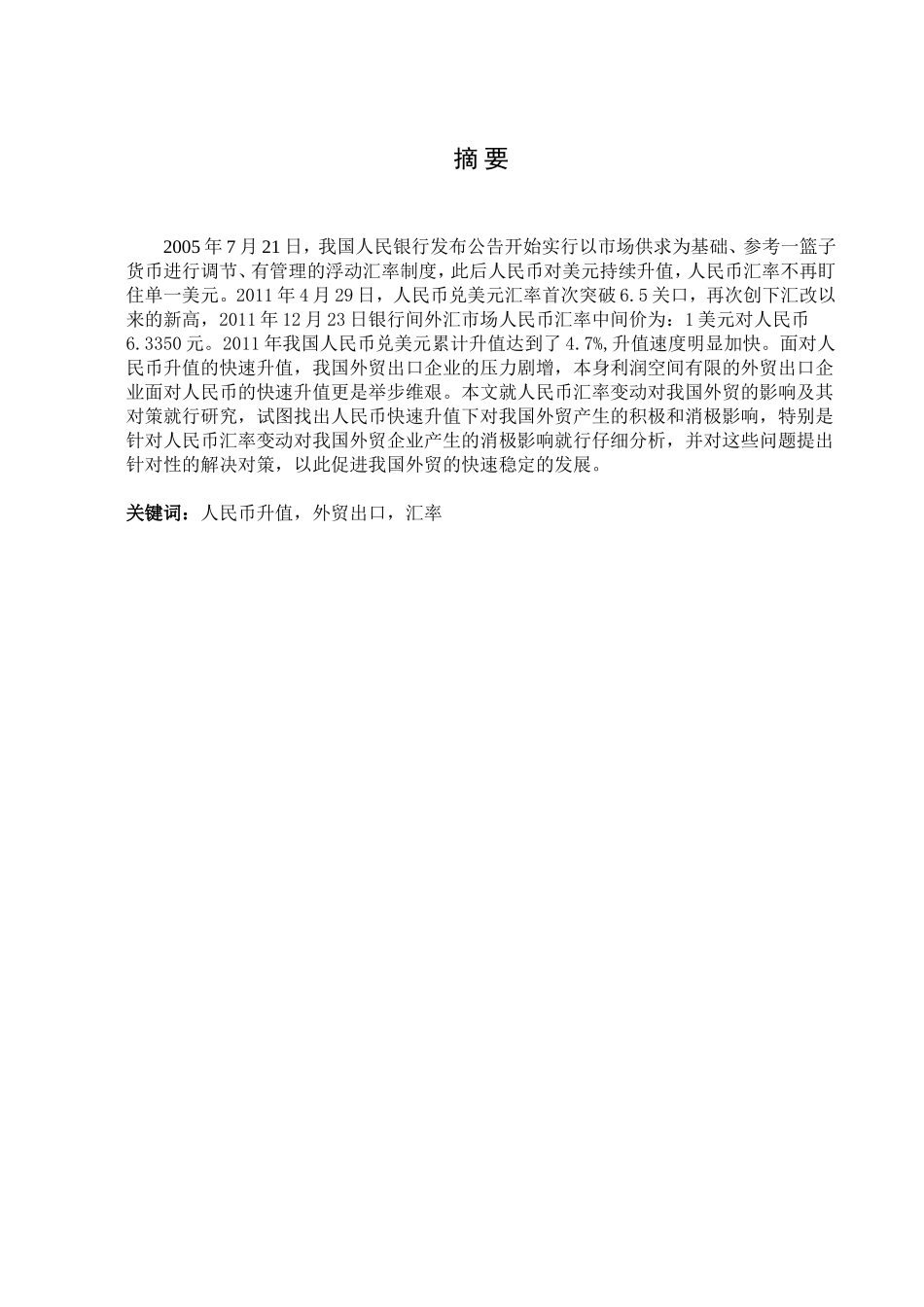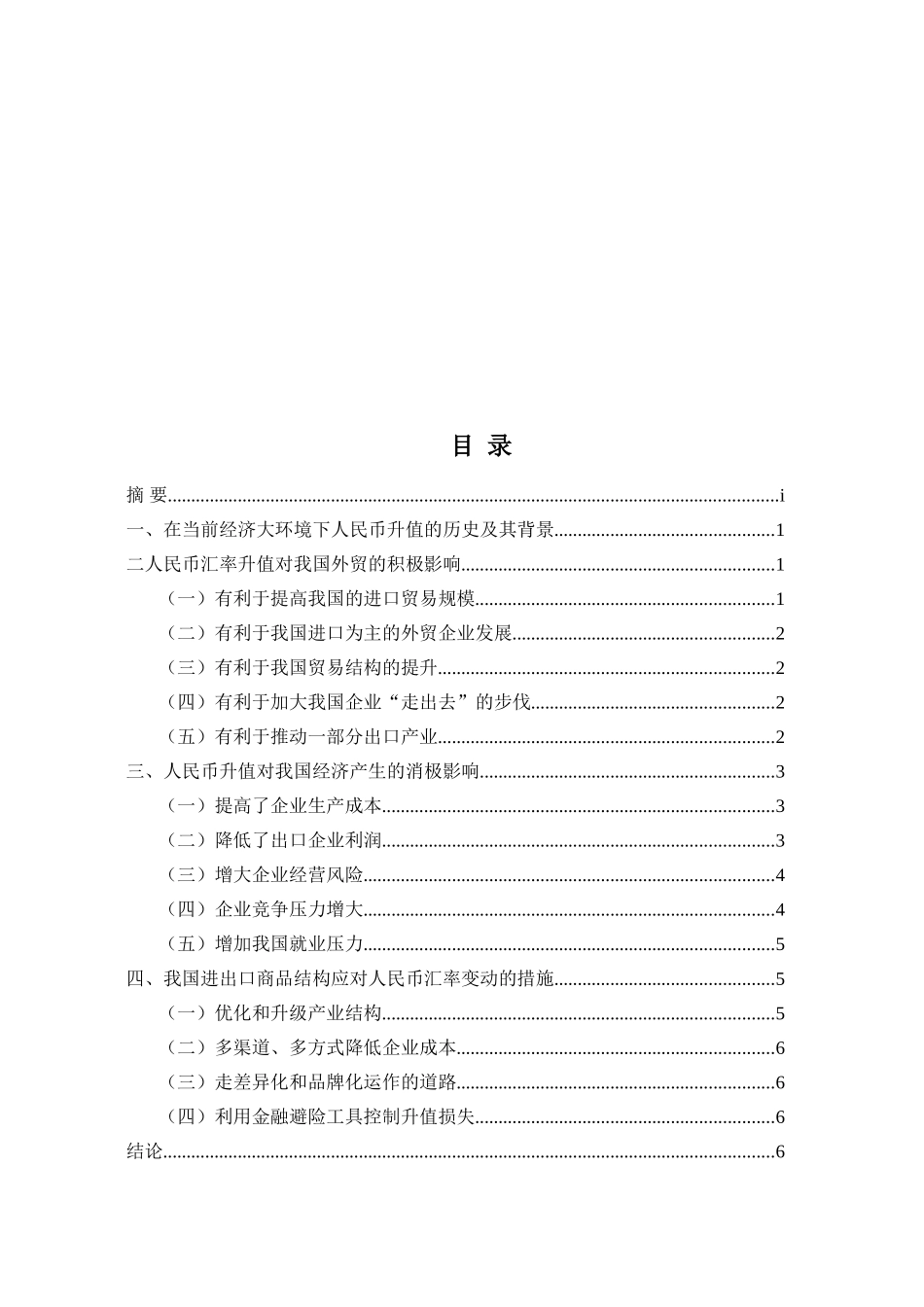摘 要2005 年 7 月 21 日,我国人民银行发布公告开始实行以市场供求为基础、参考一篮子货币进行调节、有管理的浮动汇率制度,此后人民币对美元持续升值,人民币汇率不再盯住单一美元。2011 年 4 月 29 日,人民币兑美元汇率首次突破 6.5 关口,再次创下汇改以来的新高,2011 年 12 月 23 日银行间外汇市场人民币汇率中间价为:1 美元对人民币6.3350 元。2011 年我国人民币兑美元累计升值达到了 4.7%,升值速度明显加快。面对人民币升值的快速升值,我国外贸出口企业的压力剧增,本身利润空间有限的外贸出口企业面对人民币的快速升值更是举步维艰。本文就人民币汇率变动对我国外贸的影响及其对策就行研究,试图找出人民币快速升值下对我国外贸产生的积极和消极影响,特别是针对人民币汇率变动对我国外贸企业产生的消极影响就行仔细分析,并对这些问题提出针对性的解决对策,以此促进我国外贸的快速稳定的发展。关键词:人民币升值,外贸出口,汇率AbstractApril 29, 2011, the RMB against the U.S. dollar for the first time exceeded the 6.5 mark, once again hit a new high since the exchange rate reform, December 23, 2011 interbank foreign exchange market, the RMB exchange rate: 1 U.S. dollar against 6.3350 yuan. 2011 China's RMB cumulative appreciation against the U.S. dollar reached 4.7 percent, the appreciation of the significantly faster. Faced with the rapid appreciation of the RMB appreciation, China's foreign trade export enterprises of pressure surge itself limited profit margins of export enterprises in the face of the rapid appreciation of the ren min bi is difficult. In this paper, the RMB exchange rate changes on China's foreign trade and its countermeasures on research, trying to find the positive and negative effects of fast appreciation of China's foreign trade, especially the negative impact of China's foreign trade enterprises for the RMB exchange rate changes on a careful analysis of and these issues targeted countermeasures, in order to promo...


